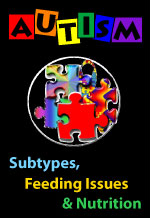Professional Supervision in Speech-Language Pathology is a new 2-hour audio continuing education (CE) course that presents research on best practices in professional supervision, as required by the American Speech-Language-Hearing Association (ASHA) in 2020.
Participants will learn about effective leadership programs that can be applied to professional supervision in speech-language pathology and audiology at any level or setting. The presenter looks at how to determine a supervisee’s level of competence and confidence, allowing the supervisor to differentially supervise and address their unique needs.
Models of supervision (including Anderson’s Continuum of Supervision; the Supervision, Questioning and Feedback (SQF) Model of Clinical Teaching; and the Cognitive Apprenticeship Instructional Model) are discussed, highlighting the supervisor’s role in the process.
A variety of effective feedback types are described and self-evaluation techniques for both the supervisor and supervisee are explained. The presenter also shares methods of supporting the supervisee in setting up and measuring goals for self-directed professional supervision. Examples for assisting with goals to improve limited areas of performance are included.
The topic of professional supervision is much too extensive to cover every aspect in detail. This course is an overview, which may help the speech-language pathologist or audiologist identify areas for further study. Course #21-39 | 2020 | 2-Hour Audio Course with Handout | 15 posttest questions
Professional Development Resources is approved by the American Psychological Association (APA) to sponsor continuing education for psychologists. Professional Development Resources maintains responsibility for this program and its content. Professional Development Resources is also approved by the National Board of Certified Counselors (NBCC ACEP #5590); the Association of Social Work Boards (ASWB Provider #1046, ACE Program); the American Occupational Therapy Association (AOTA Provider #3159); the Commission on Dietetic Registration (CDR Provider #PR001); the Alabama State Board of Occupational Therapy; the Florida Boards of Social Work, Mental Health Counseling and Marriage and Family Therapy (#BAP346), Psychology & School Psychology (#50-1635), Dietetics & Nutrition (#50-1635), and Occupational Therapy Practice (#34); the Georgia State Board of Occupational Therapy; the New York State Education Department’s State Board for Mental Health Practitioners as an approved provider of continuing education for licensed mental health counselors (#MHC-0135); the Ohio Counselor, Social Worker & MFT Board (#RCST100501); the South Carolina Board of Professional Counselors & MFTs (#193); the Texas Board of Examiners of Marriage & Family Therapists (#114) and State Board of Social Worker Examiners (#5678); and is CE Broker compliant (all courses are reported within a few days of completion).
Enjoy 20% off all online continuing education (CE/CEU) courses @pdresources.org! Click here for details.












